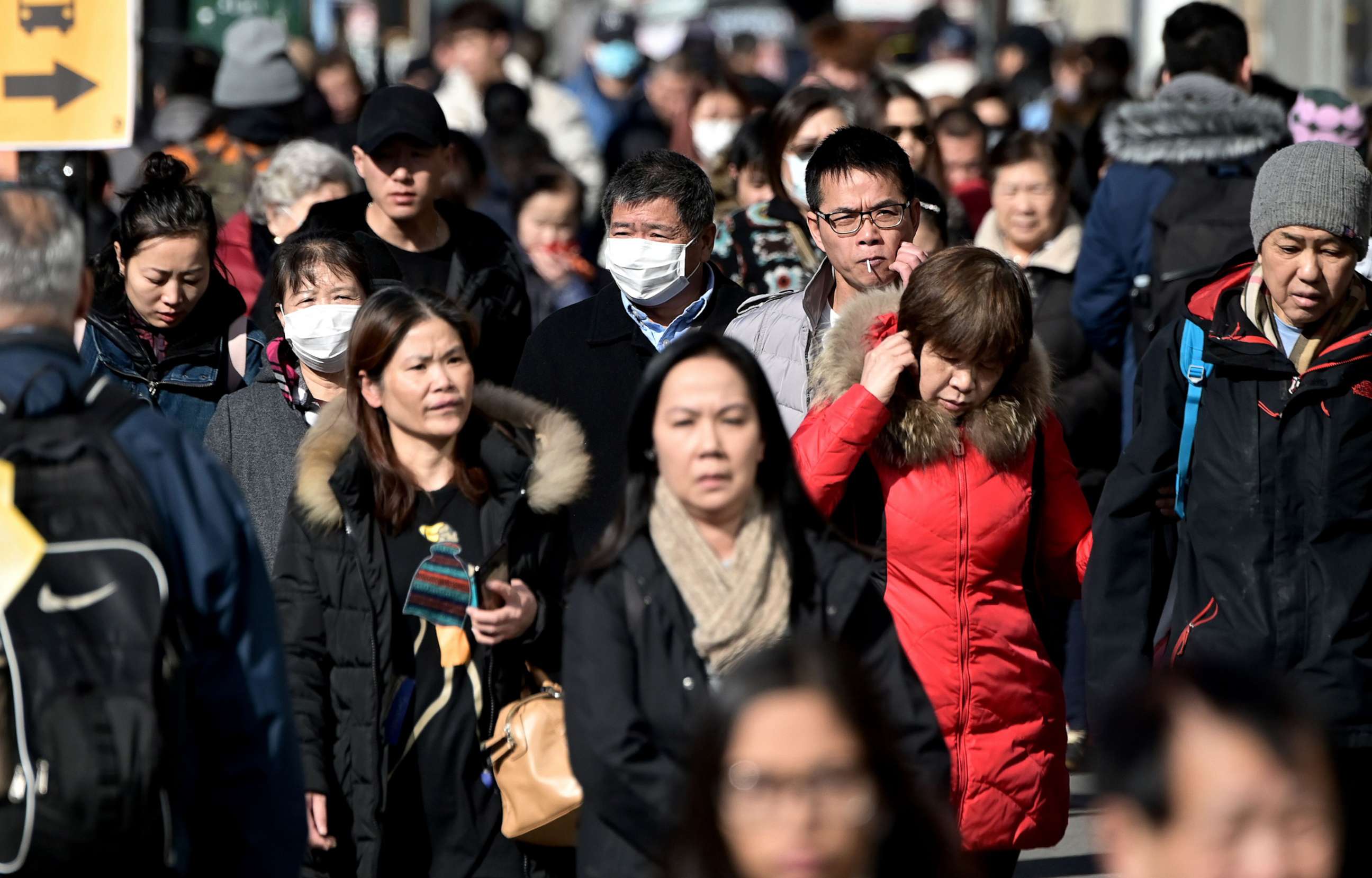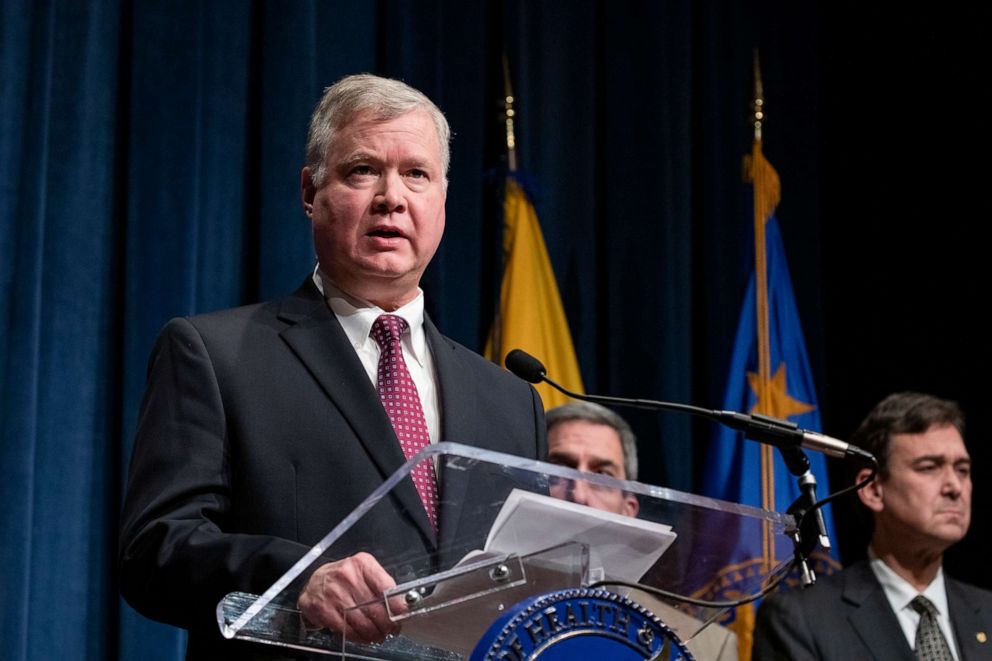Trump budget proposes cuts to global health amid two global health crises
The proposal is unlikely to pass, given bipartisan opposition in Congress.
Amid two global health crises, the Trump administration has proposed cutting $3 billion from the U.S. government's global health programs in its latest budget request.
The proposed cuts are unlikely to happen given consistent, bipartisan opposition to President Donald Trump's attempts to slash funding for the State Department and U.S. Agency for International Development, or USAID. But other programs and positions have already been cut, with critics saying it leaves the U.S. less prepared to handle infectious disease outbreaks.
The world's health systems are currently battling two deadly outbreaks. The novel coronavirus that started in Wuhan, China, in December has now infected 45,171 people in 26 countries, killing 1,115 people so far. But the Democratic Republic of Congo is also dealing with the second largest outbreak of Ebola ever, with 3,429 reported cases and 2,251 people killed.
Still, global health advocates say the administration does deserve some credit for proposing over $1 billion for vaccinations for children around the world.

"The budget protects against infectious disease threats at home and abroad by bolstering country capacity to prevent, detect and respond to outbreaks and to prevent epidemics from reaching our borders," Deputy Secretary of State Stephen Biegun said Monday.
But the budget request proposes reducing funding for global health programs from the $9.1 billion Congress allocated for them in Fiscal Year 2020 to $6 billion for FY 2021. That's a drop even from the Trump administration's budget proposal last year, which requested $8.9 billion.
The proposal would also cut funding to the World Health Organization by 53% and to the Pan American Health Organization by 75%.
Douglas Pitkin, the State Department's director of budget and planning, said the cuts to WHO and PAHO are about seeking "greater accountability and efficiency" from both organizations. Instead, he said, direct assistance to countries is often a better way "to reach specific diseases and specific health crises."
But the $3 billion cut to global health programs includes direct, bilateral assistance.
During brief remarks introducing the budget request, Biegun said the administration is asking to "replenish the flexible global health emergency reserve fund to allow us to quickly respond to outbreaks." But that amount -- $25 million -- is a quarter of what Secretary of State Mike Pompeo said the administration was willing to spend to respond to the novel coronavirus outbreak.

The top Republican on the House Foreign Affairs Committee cautioned against the cuts in a statement Monday night.
"While I welcome the President's efforts to cut wasteful government spending, we must ensure that cuts don't result in higher costs to taxpayers down the road," said Rep. Michael McCaul, specifically referencing efforts to "support vital global health and food security programs."
The committee's chair, Rep. Eliot Engel of New York, was more emphatic, tweeting a photo of a recycling bin and writing, "The White House should save some trees rather than sending us a budget that's headed straight here."
Even when Republicans controlled the House, Trump's State Department and USAID budget requests were roundly rejected. McCaul and Engel are likely to work together again to fully fund both agencies.
But the administration has taken some steps that critics say have left it less prepared to respond to an infectious disease outbreak. In the fall, USAID moved to end a global health surveillance project, called PREDICT, to study diseases in animals that may infect humans -- which is how both outbreaks most likely started -- and train countries to detect and respond to them early. It's part of a larger Emerging Pandemic Threats (EPT) program that was born out of the H5N1 bird flu outbreak in 2005.
A USAID spokesperson told ABC News the project will now end in March, but they are developing "a new program that will help USAID-supported countries to combat emerging infectious diseases, building on the successful work done by PREDICT."
But some critics have warned that letting PREDICT lapse could risk losing the "level of proficiency" it created in local work forces studying infectious diseases, according to Dr. Jonathan Epstein, an EcoHealth Alliance veterinarian.
In July 2018, Trump also dissolved a specialized unit at the National Security Council for global pandemics, and the homeland security adviser position is currently vacant. Two weeks ago, instead, Trump created a special presidential task force to lead the U.S. government response to the novel coronavirus, with Health and Human Services Secretary Alex Azar at the helm.
Despite the cuts to global health, advocates lauded the administration for one proposal: A $1.16 billion contribution over four years to Gavi, a global alliance to vaccinate 300 million children. The fund has already vaccinated more than 760 million children worldwide over the last 20 years, preventing 13 million deaths. The $1 billion contribution would replenish the U.S. commitment to the organization in full.
"A robust request for Gavi, the Vaccine Alliance, for the next several years sends a strong positive signal to the world that the U.S. will maintain its full commitment to help save 8 million lives. Mark Green and the team at USAID deserve a lot of credit," said Tom Hart, North America executive director for the ONE Campaign.




